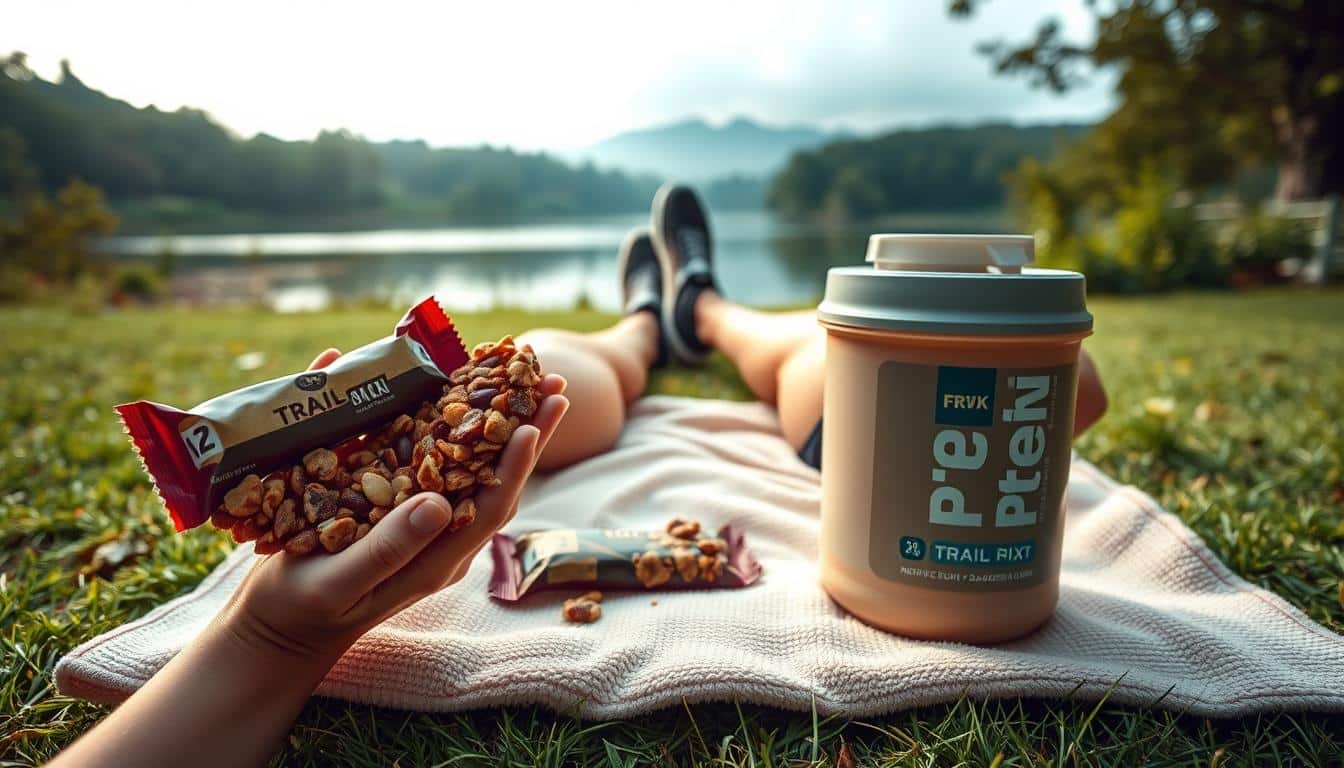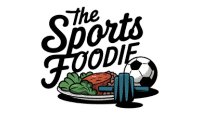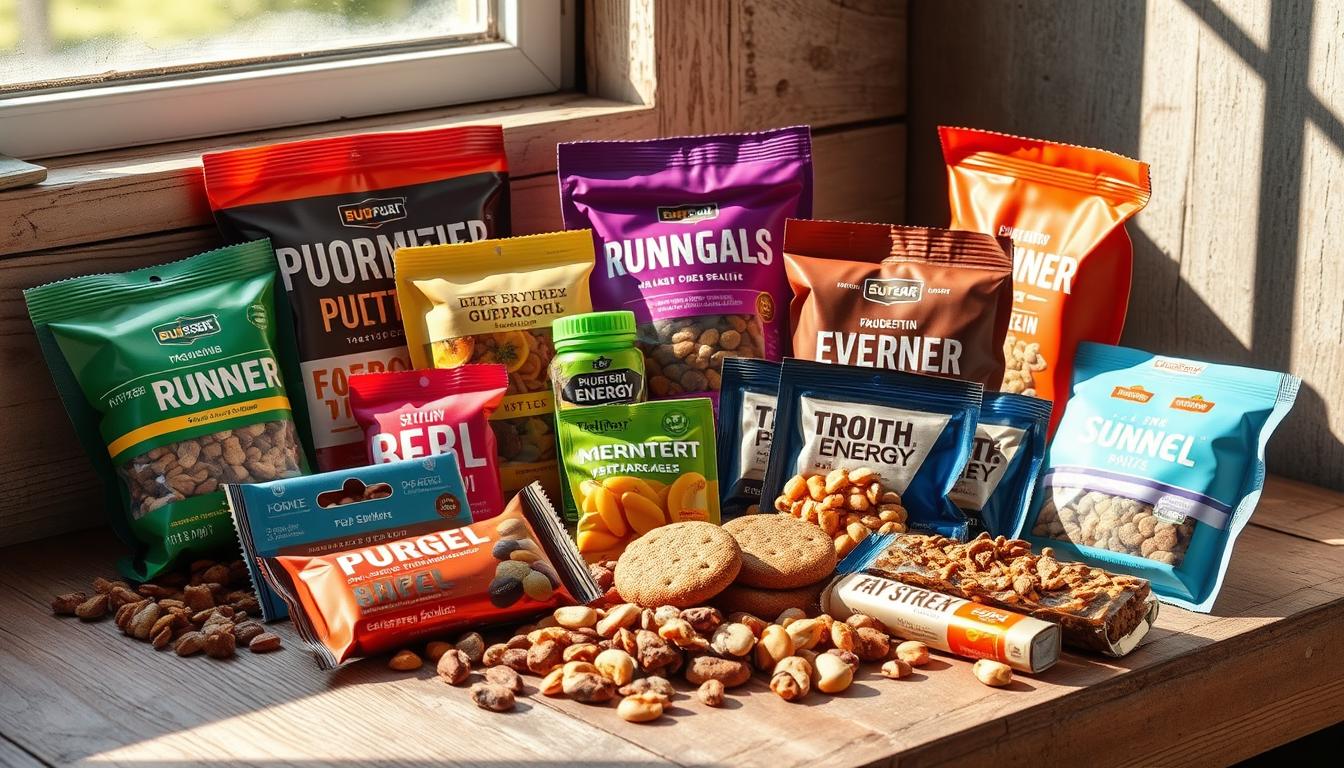What if your post-run snack habits are secretly sabotaging your progress? Many athletes focus on carbs and hydration but overlook the critical role of muscle recovery in their performance. Whether you’re tackling mile repeats or lifting weights, your body craves specific nutrients to rebuild stronger.
Leucine, a powerful amino acid found in certain foods, triggers muscle growth more effectively than other proteins. Without enough of it, even the toughest workouts might not deliver the results you want. The challenge? Finding options that taste great, fit your schedule, and deliver what your body needs.
Juggling training with daily life means convenience matters. You deserve snacks that work as hard as you do—no endless prep or bland flavors. Homemade bites or store-bought picks can both fuel your runs if they’re packed with the right stuff.
This guide cuts through the confusion. You’ll discover how to choose foods that boost energy, speed up recovery, and keep you consistent. Let’s turn your snack game into a secret weapon for stronger miles ahead.
Understanding Protein Needs After Running

Muscle recovery isn’t just about rest—it’s about what you eat next. When you push through miles, your body breaks down tissue to adapt. The right nutrients help rebuild it stronger.
How Protein Supports Muscle Repair
Every run creates microscopic tears in your muscles. These need amino acids—protein’s building blocks—to heal. Think of them as construction workers patching cracks in a road. Without enough supply, repairs stall.
Leucine, a key amino acid, signals your body to start rebuilding. Foods like eggs or yogurt deliver this trigger efficiently. Pair them with carbs to speed nutrient delivery.
Guidelines for Protein Intake Post-Workout
Your workout length and intensity determine needs. A 45-minute jog? Aim for 10-15 grams. Tackling hill repeats for 75 minutes? Target 20 grams.
| Workout Duration | Intensity | Protein Target | Example Foods |
|---|---|---|---|
| 45-60 mins | Moderate | 10-15g | 2 eggs (12g) |
| 60+ mins | High | 20g | Greek yogurt (15-20g) |
Time matters too. Consume protein within an hour after running. This window maximizes absorption. Add a banana or toast to boost energy for tomorrow’s session.
Benefits of Consuming Protein Snacks for Recovery
Ever wondered why some days you feel unstoppable after a run, while others leave you dragging? What you eat post-workout plays a bigger role than most realize. Smart food choices don’t just satisfy hunger—they set up your body for success tomorrow.

Energy That Lasts and Hydration That Works
Timing is everything. Eating within an hour after running helps your muscles repair and refuel. Combine proteins with carbs—like apple slices with almond butter—to kickstart recovery and maintain energy levels all day.
Salty options like beef jerky do double duty. The sodium replaces electrolytes lost through sweat, helping you rehydrate faster. Pair it with water or coconut water for best results.
- Sustained fuel from proteins beats sugar crashes
- Electrolytes in salty foods aid fluid retention
- Balanced blood sugar keeps your mood steady
Don’t forget healthy fats! Nuts or avocado add staying power to your snack while supporting overall nutrition. For creative ideas that pair well with active lifestyles, try these delicious dessert-inspired options.
Regular runners often notice fewer colds and faster bounce-back times. That’s because consistent protein intake strengthens your immune system—a must when pushing your limits.
Best High Protein Snacks for Runners
Busy schedules demand smart fueling strategies that work as hard as you do. Whether rushing to work or squeezing in lunch between workouts, your recovery food should match your pace without sacrificing quality.
Ready When You Are
Need something fast? Pre-packed choices like turkey-and-cheese roll-ups deliver 11 grams of muscle-supporting nutrients per serving. Keep hard-boiled eggs in your fridge—each packs 7 grams and takes seconds to grab.
Kitchen-Crafted Solutions
Prefer homemade control? Whip up overnight oats with cottage cheese for 15 grams per bowl. Bake egg muffins on Sundays for instant weekday fuel. You’ll save money and skip added sugars found in store-bought versions.
| Option | Protein (grams) | Prep Time | Portability |
|---|---|---|---|
| Greek yogurt cup | 15-20 | 0 mins | Excellent |
| DIY trail mix | 10-12 | 5 mins | Good |
| String cheese + nuts | 14 | 2 mins | Excellent |
Mix store-bought and homemade picks based on your week. A protein bar stashed in your gym bag pairs perfectly with fresh fruit from your kitchen. Balance saves time while keeping meals exciting.
Homemade High Protein Snack Recipes
Your kitchen becomes a fueling station with these simple recipes. You don’t need chef-level skills—just smart ingredients that do double duty. Let’s explore two categories that deliver big flavor without complicated steps.
Bagels, Wraps, and Egg Muffins
Mix 2 cups self-rising flour with 1-2 cups nonfat plain Greek yogurt for doughy everything bagels. Bake at 375°F for 25 minutes—each gives 9-10 grams of muscle-supporting nutrients. Add sesame seeds for crunch.
Whisk eggs with diced peppers and spinach. Pour into muffin tins and bake. Each bite offers 7 grams (9g with ham). Make 12 on Sunday—grab one daily.
| Recipe | Protein (grams) | Prep Time | Customization Ideas |
|---|---|---|---|
| Greek Yogurt Bagels | 9-10 | 35 mins | Everything seasoning, garlic powder |
| Egg Veggie Muffins | 7-9 | 20 mins | Feta cheese, turkey bacon |
Cottage Cheese and Greek Yogurt Combinations
Blend cottage cheese with pineapple chunks for a sweet treat. Need savory? Mix with diced cucumber and dill. One cup delivers 25 grams—perfect post-run.
Layer Greek yogurt with oats and berries overnight. Add ½ scoop vanilla whey powder to ⅓ cup oats and ⅔ cup 2% milk. Wake up to 30 grams ready to go.
- Swap sugary dips with Greek yogurt + ranch seasoning
- Freeze blended cottage cheese for creamy popsicles
- Use both bases in smoothies for thicker texture
Pre-Made and Packaged Snack Choices
Grocery store aisles overflow with options, but smart choices make all the difference. Let’s explore grab-and-go solutions that balance convenience with muscle-supporting nutrients.
Protein Bars and Jerky Selections
Rx bars deliver 12 grams per serving with ingredients like dates and egg whites. Their no-added-sugar approach keeps energy steady—perfect when rushing between commitments. For savory cravings, Chomps jerky sticks offer 9 grams without artificial additives.
Need crunch? Wilde’s baked chicken chips pack 10 grams per handful. Pair these with baby carrots for a satisfying combo. Always check labels—some bars hide 20+ grams of sugar behind “healthy” marketing.
Tuna, Cheese, and Convenient Pairings
One tuna pouch delivers 27 grams—more than many post-workout meals. Mix it with crackers or eat straight from the package. String cheese shines as a portable dairy option: each stick provides 7 grams and pairs well with almonds or grapes.
Thomas’ protein muffins (9 grams each) make excellent toast bases. Add peanut butter for an extra boost. While pre-packed options save time, they often cost 30% more than DIY versions—weigh convenience against your budget.
| Option | Protein | Best For |
|---|---|---|
| Rx Bar | 12g | Quick fuel |
| Chomps Jerky | 9g | Travel days |
| Tuna Pouch | 27g | Heavy training |
Smart Nutrient Pairings for Optimal Performance
Your post-workout snack could be the difference between hitting a wall or your next PR. The right combinations do more than satisfy hunger—they unlock your body’s full recovery potential.
Combining Protein with Carbs
Carbs refuel energy stores, while amino acids repair muscles. Together, they create a powerhouse duo. Kodiak Cakes Oatmeal delivers 38g carbs and 14g protein—a near-perfect 3:1 ratio dietitians love.
Try blending kefir with Greek yogurt, frozen berries, and bananas. This smoothie packs 20g protein plus hydration support. The natural sugars in fruit kickstart recovery without energy crashes.
| Ideal Pairing | Carbs (g) | Protein (g) |
|---|---|---|
| Oatmeal + almond butter | 42 | 16 |
| Sweet potato + turkey slices | 37 | 18 |
| Whole-grain toast + eggs | 25 | 12 |
Incorporating Healthy Fats and Vitamins
Add walnuts to yogurt or avocado to whole-grain crackers. These healthy fats slow digestion, keeping energy steady during long training blocks. They also help absorb vitamins from other foods.
Berries bring antioxidants that fight post-run inflammation. Pair them with citrus fruits to boost iron absorption. A handful of nuts provides both fats and plant-based nutrients—nature’s perfect two-in-one snack.
- Dark chocolate-covered almonds satisfy cravings while delivering magnesium
- Chia seeds in smoothies add omega-3s for joint health
- Spinach in egg scrambles offers vitamin K for bone strength
Homemade Versus Packaged: Making the Right Choice
Balancing training with life’s demands means every choice counts—especially what you eat between runs. Let’s explore how to fuel your body without burning precious time or breaking the bank.
Cost, Taste, and Convenience Considerations
Homemade options save money for those constantly refueling. A DIY trail mix with almonds and raisins costs 60% less than store-bought versions. You control every ingredient, avoiding hidden sugars common in processed bars.
Pre-made picks shine when minutes matter. After long runs or hectic workdays, grab-and-go items prevent skipped meals. Keep single-serve nut butter packets in your gym bag—they pair perfectly with apples or rice cakes.
| Factor | Homemade | Packaged |
|---|---|---|
| Cost/Serving | $0.50-$1.50 | $2.00-$4.00 |
| Prep Time | 15-30 mins | 0 mins |
| Portability | Moderate | High |
Smart runners often mix both approaches. Batch-prep energy balls on Sundays, then supplement with quality bars during travel weeks. Trail mix offers flexibility—buy premium ingredients and combine them yourself for freshness.
Time-crunched days demand solutions that work. Stock pantry staples like peanut butter and whole-grain crackers for last-minute needs. When life slows, experiment with homemade recipes using seasonal fruits or savory spices.
Conclusion
The right fuel turns miles into milestones. Whether blending a quick almond butter smoothie or grabbing hummus with veggie sticks, your choices directly impact how your body bounces back. Smart nutrition isn’t complicated—it’s about pairing quality ingredients with your unique routine.
Need inspiration? Try rolled oats with chia seeds for sustained energy, or whip up a yogurt parfait layered with fresh fruit. Active teens might enjoy these creative combos that balance taste and performance. Remember: portable options like nut butter packets or roasted chickpeas keep you fueled during busy days.
Listen to your body’s signals. Craving salty crackers after a long run? Your muscles might need electrolytes. Drawn to sweet treats? Opt for natural sugars in dates or berries. Every snack becomes a building block for stronger runs ahead.
Stay consistent, stay curious, and let your food work as hard as your legs do. The finish line tastes sweeter when you’ve nourished every step.


